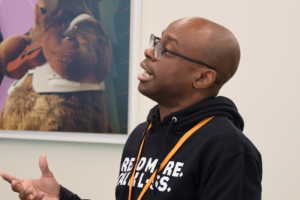
10 Universities Seek Recognition by a New Accreditor
Just four months after the launch of the Commission for Public Higher Education, the aspiring accreditor has received letters of intent from a cohort of 10 institutions, making them the first potential members.
The initial group to submit a letter of intent seeking CPHE accreditation comes from four states: Florida, Georgia, North Carolina and Texas. All are currently accredited by the Southern Association of Colleges and Schools Commission on Colleges. They are:
- Appalachian State University (N.C.)
- Chipola College (Fla.)
- Columbus State University (Ga.)
- Florida Atlantic University
- Florida Polytechnic University
- Georgia Southern University
- North Carolina Central University
- Texas A&M Kingsville
- Texas A&M Texarkana
- University of North Carolina at Charlotte
With its inaugural cohort and draft standards in place, the newly formed commission—introduced by Florida governor Ron DeSantis at a June press conference in which he railed against existing accreditors—is making progress toward its eventual goal of recognition by the U.S. Department of Education, which is a years-long process. Now the first 10 potential member institutions will offer CPHE a chance to show how it might offer a different approach to accreditation, even as it simultaneously battles accusations that it is aligned with DeSantis and his partisan attacks on higher ed.
The Initial Cohort
The aspiring members are all public colleges or universities—in keeping with CPHE’s stated mission—and represent a range of institution types. Several, including Florida Atlantic, are large research institutions, while NCCU is a historically Black university and Chipola College mostly offers two-year programs, though it does confer some bachelor’s degrees as well.
“I think it’s an extraordinary group. It’s beyond, both in terms of number and in terms of breadth, where I think anyone could have reasonably thought we would be when we started this project,” said Daniel Harrison, vice president for academic affairs at the UNC system, who has worked from the beginning of the project to launch the Commission for Public Higher Education.
Harrison noted that those institutions were the first to express interest before the fledgling accreditor capped the initial cohort at 10, though he anticipates bringing more in next year.
Those institutions will maintain SACSCOC accreditation while going through the recognition process for CPHE, which will include a self-study by the universities, meeting with teams of peer reviewers and site visits—all typical parts of the recognition process for any accreditor.
While Harrison said CPHE encouraged individual institutions to discuss the endeavor with Inside Higher Ed, only three of the 10 provided responses to requests for statements or interviews.
Appalachian State University provost and executive vice chancellor Neva Specht wrote in an email that “we welcome a peer review process that recognizes the characteristics that distinguish institutions of public higher education.” Specht added that they “anticipate that an accreditation process that emphasizes clear outcomes and helps focus our work in alignment with public higher education standards will help bolster confidence not only in our institution, but in our industry, as we continue working together on improving value and return on investment for our students, their families, and the taxpayers of North Carolina.”
Chipola president Sarah Clemmons also offered a response, writing in an emailed statement that the college “believes that a competitive environment fostered by multiple institutional accreditation options promotes innovation and continuous improvement in accreditation practices. Quality assurance is strengthened when accreditors must demonstrate their value and effectiveness to their member institutions. This healthy competition ensures quality which ultimately benefits students, institutions, and the broader higher education community.”
UNC Charlotte, which has faced criticism for allegedly pursuing CPHE accreditation without faculty input, shared with Inside Higher Ed a previously published statement and frequently asked questions page.
Others either did not respond or referred Inside Higher Ed to system officials or CPHE. When asked for comment, the University System of Georgia pointed back to CPHE.
The Specter of Politics
The public first learned about CPHE during the June press conference where DeSantis blasted the failings of higher education broadly and accreditors specifically. The Republican governor attacked the “accreditation cartel” and claimed SACSCOC sought to impose diversity, equity and inclusion standards on Florida universities, though the organization has never had standards on DEI practices. (Asked about that topic, DeSantis falsely claimed it does have DEI standards.)
While DeSantis emphasized conservative political grievances with accreditation in the initial announcement, CPHE leaders have sought to temper the governor’s remarks.
Harrison—who was traveling to Appalachian State University to meet with professors the same day he spoke to Inside Higher Ed—said the commission is working in a “personalized way” to address concerns about politicization by seeking faculty input at potential member institutions.
“We are coming very earnestly to our faculty and asking them to engage with us and help us to make this what it should be,” Harrison said. “And I think that if faculty will continue to allow us the room to grow and to operate, they’re going to be very pleased by what they see here.”
He also highlighted the appointment of Mark Becker to CPHE’s board.
Becker, the former president of the Association of Public and Land-grant Universities and former leader of Georgia State University, said in a news release announcing his role that “the time is ripe for innovation in higher education accreditation,” adding that CPHE “is poised to take advantage of that opportunity to become a powerful engine for improving student outcomes across the sector.”
Harrison argued that Becker’s “entire career has been built on serious nonpartisanship—not bipartisanship, nonpartisanship. And that is the model that we are following here as well.”
But critics persist.
Faculty voices have been the most critical of CPHE thus far, especially the American Association of University Professors, which held a webinar on “politicizing accreditation” earlier this fall highlighting concerns about the new accreditor.
Matthew Boedy, a University of North Georgia professor who led the AAUP webinar, expressed worry about how state governments might impose their political will on CPHE. In a follow-up email to Inside Higher Ed, he cited CPHE’s “lack of independence” from states as the most significant concern.
“Whatever power SACS or others had to limit political interference or leveraging campus expansions on bad economics or even cuts in programs—all that would be gone,” Boedy wrote. “Administrations at the campus and system level can’t be both the referee and player in this game. There is also a concern that this new ‘state run’ accreditation will not just limit itself to schools but also professional programs like law and medicine that have stuck to diversity goals.”
The AAUP has also encouraged members to contact lawmakers and trustees to express their apprehensions, sharing talking points in a tool kit circulated last month that took aim at the organization.
“CPHE is not an academically credible accrediting body,” reads part of a proposed script in the AAUP tool kit designed to help members organize against the new accreditor. “It is structured to advance political agendas by allowing state government control over institutional accreditation. It threatens academic freedom, faculty shared governance, and institutional autonomy.”
But CPHE officials continue to urge critics to focus not on DeSantis’s partisan rhetoric but rather on how the organization has proceeded since it was launched. Speaking to Inside Higher Ed at the APLU’s annual conference on Monday, Cameron Howell—a University of South Carolina official and CPHE adviser—argued that the organization has eschewed politics in its operations.
“I believe there is nothing political or ideological about what we are doing,” Howell said.
While he said he didn’t “want to end up in a rhetorical argument with the governor of Florida,” Howell emphasized that other speakers involved in the rollout who followed the governor in the June press conference focused on innovation and efficiency. He also emphasized transparency in CPHE operations.
“We have tried very, very diligently to be transparent in the way we’re making decisions and in the way we’re seeking feedback, in part to demonstrate in a way that’s completely aboveboard that nothing that we’re doing is political or ideological,” Howell said. “Now, of course, there are benefits to having stakeholder involvement in and of itself, but I think that we’ve done a pretty good job of convincing a lot of faculty with whom we’ve been working … a lot of other administrators, that we take this very seriously, that it’s about process and results. It’s not about politics.”
Source link



